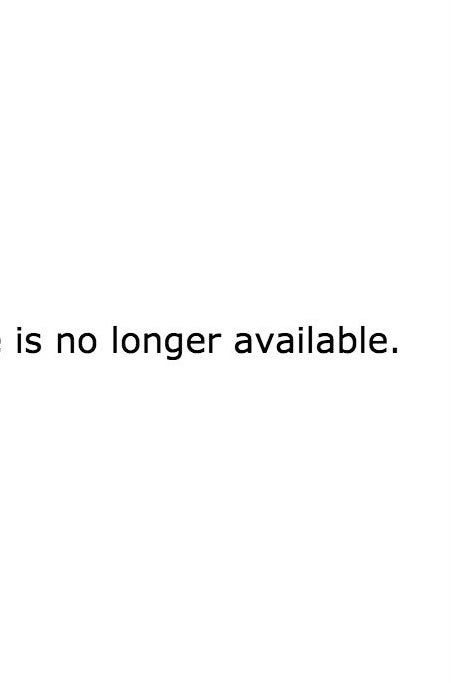
Every year at the end of June, the San Francisco Pride Parade starts in the exact same way — with the cascading roar of several hundred women starting up their motorcycles at the exact same time. This year was no different. The San Francisco Dykes on Bikes: Women’s Motorcycle Contingent, or simply DOB, led the parade down Market Street for the 40th year in a row — the parade itself is only 6 years older.
Finding their place at the front was easy. The first time a group of female motorcyclists gathered at the head of the SF Pride Parade, in 1976, they were sick and tired of handling their bulky bikes — prone to overheating — while crawling along at parade-goer pace. As the story goes, an article in the San Francisco Chronicle dubbed the motorcycle club "Dykes on Bikes" and the name stuck. But earning the right to officially (and legally) label themselves "dykes" proved to be a lot harder.
As the organization grew, the women attempted to protect the moniker for nonprofit use, only to have the trademark office reject their request on the grounds that the term was derogatory to the lesbian community. From 2003 to 2008, the battle over their name continued, until the trademark office yielded following the submission of sufficient evidence that proved activists were reclaiming the word for positive use — the iconic television show Queer Eye for the Straight Guy was referenced as a similar example. Today, the DOB has chapters all over the globe, from Melbourne to London to Akureyri, Iceland. All of the women call themselves "dykes" proudly — it's fully trademarked, after all.

On parade day, the dykes' main priority is safety — the safety of every rider and the safety of the entire parade that follows behind. DOB members ride up front, followed by other women's motorcycle clubs, independent female riders, Homoto (a gay men's motorcycle club), BARF (Bay Area Riders Forum), and lastly independent male riders. Like a club bouncer you don't want to mess with, the DOB act as leather-clad bodyguards, leading the floats safely down the often treacherous parade route (potholes and cable car tracks are not a bike's best friend).
After a gunman massacred 49 people at a gay bar in Orlando earlier this month, safety measures at the pride events that followed nationwide were all the more important. Choosing to be a visible member of the LGBT community continues to be a brave and radical act, and all over the country celebrations moved forward — more often than not, led and watched over by a group of dykes on bikes, a group solidly grounded in the belief that everyone should live openly, visibly, and without fear.
We spoke with several active DOB members to find out what motivates them to take their place, each and every year, at the front of the parade.
Kate Brown, Co-President

Kate joined the DOB 13 years ago, the same year she started grad school at UC Berkeley. She rides a 1995 Honda Magna VF750.
"I really quickly found myself aligned with who they are as a group of female-identified people — just really liked their presence. I liked that they were visible in the LGBT community, because in 2003, 2004, things were a bit different. The first time I saw a parade and [the DOB] were in the front, I was like, 'Oh, that's what I want to do. That's who I am.' When I joined I was in my early to mid-twenties, so I got to look at a group of people who had come out at different points in their lives and were proud of who they were. I had an opportunity to learn from them and how they existed in the world. There's a proud history of the DOB being in the front and not backing down; I saw that day-to-day in who they were.
"I think the thrill, there's a thrill when you ride a motorcycle that you don't get from riding in a car. One of the first times I ever rode by myself, I remember just the smell and the sounds. You appreciate what's around you so much more. I've had three motorcycles; this one I've had since 2008. There is a sense of ownership and control on a bike — sometimes that's not something that's given to queer women. Claiming that is part of that process. It's power, it's showing you're in charge and you don't need help from anyone else."



"When I first came out, I didn't have a relationship with the word 'dyke.' I was still closeted. For me, that word really embodies courage, and it took me a while to be courageous in who I was and not back down from my sexuality. Now when I think about that word, I am a proud dyke. It's saying, 'I'm going to ride in the front of the parade, I'm going to be who I am, I'm going to walk in the world the way I am — I can't change that.' To me it's courage and it's strength and it's not backing down."

Mindie Dodson, Registration Chair

Originally from Oklahoma, Mindie joined the DOB seven years ago and rides a 2014 Harley Ultra Limited.
"I've been riding bikes since I was 10 years old in Broken Arrow, Oklahoma. I used to ride a motorcycle home from high school. That's how I got home from the bus. I was a drum major in high school, so I had marched in a lot of parades. I first got involved riding motorcycles in parades in the New York Pride Parade back in the 1990s. I rode with some of the women cadets from West Point. I was so impressed by their bravery in being willing to be out in public during the era of 'don't ask, don't tell.' Years later, when I moved to California — my partner and I went to high school together, so we've known each other for many years — we decided that we not only wanted to ride in the parade, but we wanted to be involved in philanthropic endeavors. That's when I started going to DOB meetings."

"It's empowering for women that don't ride motorcycles to see women who have embraced their ability to be powerful, to be independent, to demonstrate their freedom, by being on these bikes. By riding a motorcycle and being involved, it can lead you into a place where you can fundraise and you can help the community in a different way. I marched with friends in 1993 at the March on Washington. I remember thinking, I'm not up on the podium; am I really participating on a level that makes a difference? Looking back, just being part of the crowd made a difference. I would love for women to realize that you can find a niche in the community where your ability to educate the public and make a difference can help generations.
"There really isn't an in between when it comes to the word 'dyke'. You can feel it — you're either judged or you're embraced. I'm from Oklahoma, so it depends where I am if I decide to wear my patch out in public. Sometimes I think it's great to educate a group of people and just let them judge. To let people see we're not these hellions. Obviously, when you're walking around a place like Pride where you're embraced, it's just a lot of fun. Depending on the audience, it can evoke a range of emotions."



Jen, Vice President

A DOB member since 2013, Jen was first inspired to join after seeing the group ride in the Pride Parade. She rides a 1995 Honda Shadow VT600.
"I've always wanted a motorcycle. Ever since I was little I always thought they were awesome. I didn't have the type of parents who would let a little girl go biking. As soon as I turned 18, I said I would go do it, but then I kept putting it off. I finally took the nationwide safety class. You take the class, you get a certificate, and then you can bypass the driving portion of the DMV test. Then you get your license."



"This year, even after Orlando, I feel safe. I trust the law enforcement that will be around — I have many friends who are San Francisco police. I feel like it's extremely important for us to put on the parade. To be visible, that we are here and unafraid. That's a lot of it, people are afraid. I know a lot of people who won't come because they're afraid something bad will happen. That's not my mentality.
"I've never hated the word 'dyke.' I've always thought it was a great word. I've self-identified as soft butch, then regular butch. I've heard a lot of 'baby dyke' from the community, so I went with that. I love being called 'dyke' as long as it's not being used derogatorily. When I hear the word 'dyke' I'm like, where? [laughs]"
Vick Germany, Co-President

Vick started riding in the parade in 1998 as an independent rider. A few years later she would fulfill her dream of riding as a patch-holding member of the DOB. She's been with the organization for 15 years and rides a Suzuki Boulevard S50.
"I've always wanted to ride a motorcycle, ever since I was a kid. They're just — cool. There is never a better word for it. They're cool. When I was young I'd see people riding motorcycles and I thought, I want to do that. I didn't get on a bike until my 40th birthday. I'm coming up on my 20th year of riding now.
"One year, I had just broken up with my girlfriend, so I didn't have anyone to ride on the back of my bike with me. So I called up my mom and said, 'Mom, you want to ride with me?' She said yes. It was her first time being on the motorcycle, first time seeing the parade, and we just had such a good time. "



"I still get excited about Pride, I do. In some ways society around us has changed but the parade itself, organizing the bikes, that stays the same. The thing that we have seen is that our numbers seem to be slowly dropping off. People don't want to do the parade again and again. Frankly, Orlando's been a wakeup call. Our battles are not over, our struggles are not over. We still need to come out and show people who we are. When we start up the march on parade day, there is a lot of power we're sitting on — it's very loud. You can't deny us.
"As a community, we need to grieve. As individuals, we need to grieve. One of the emotions I feel is anger. One of the emotions I'm not feeling is fear. If I let fear drive me back into the closet or let fear stop me from being who I am, then I die a thousand deaths every day — little by little you die. I'll take the risk for being able to be who I am."

Soni Wolf, Secretary

Soni has been riding with the DOB since 1978, nearly since its origin. Recently she was voted into Sainthood by the Sisters of Perpetual Indulgence, another San Francisco staple. Past Saints include Harvey Milk and Lily Tomlin.
"We are a philanthropic organization that also empowers and educates women riders. We have a board of directors that have voting rights and from which our officers are elected from. The active patch holders work to help with fundraising events. To become a patch holder, you must attend six meetings in a row and volunteer at at least one fundraiser. Patch holders are expected to be involved in our meetings and the community as a whole.
"I've been riding with the Dykes on Bikes since 1978. The changes since then have been profound. In the beginning, we were perceived as a girl biker gang. Now we are a 501(c)(3) organization."

"It is an organization that fulfills my need for community and camaraderie among like-minded women. It was and is a way for me to socialize and not become a total hermit. I love it because I have had a vision, a dream of it becoming an international club of average women riders that do extraordinary things for the LGBT community. The first time the word 'dyke' was hurled at me and I turned around and said, 'So what. What are you going to do about it?' The word has always been a word of empowerment for me. I am proud to be a dyke on a bike."

Scroll down for some photos of the Dykes on Bikes' 40th year leading the San Francisco Pride Parade:





















